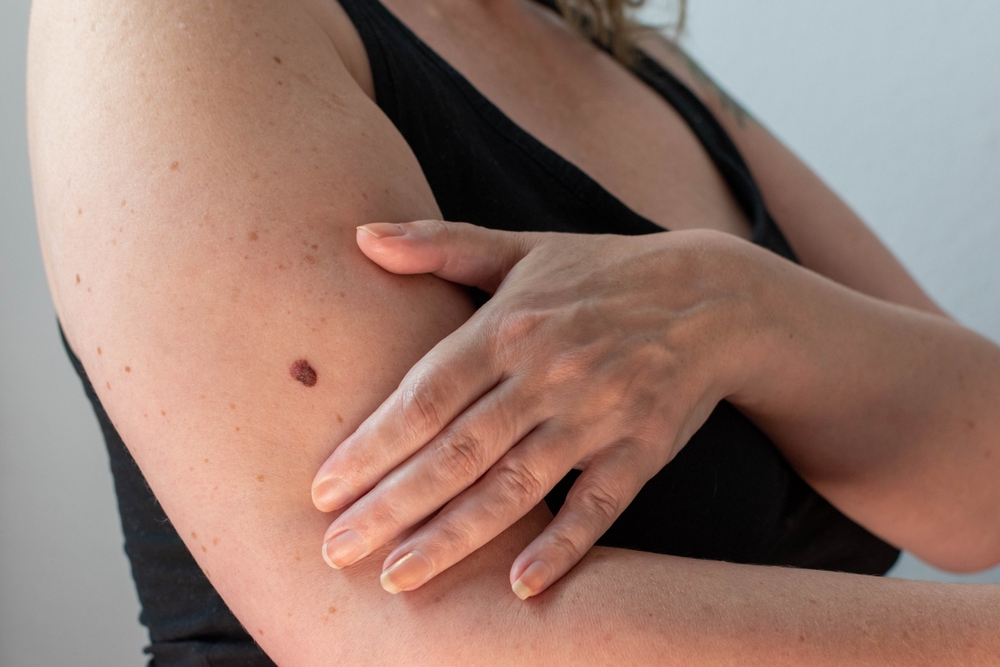Skin Cancer Surgery
Skin cancer is a dangerous and potentially fatal condition that affects millions of people each year. Those who live active lives and enjoy spending time outdoors are especially prone to skin cancer due to the damage that prolonged sun exposure and harmful UV rays can cause. Thankfully, however, skin cancer is often curable, especially when diagnosed and treated early. Our dermatologists can surgically remove cancerous growths using specialised techniques that maintain your appearance, while also ensuring your health and safety.
Although most skin lesions are non-cancerous, due to our dedication to ensuring the safety and well-being of each patient, our dermatologists send out samples of any biopsied, shaved, or excised lesion to a lab for evaluation. At the lab, a pathologist thoroughly tests and examines the specimen to determine the presence of any suspicious cells.
Based on these findings, we will proceed with the appropriate treatment, including removing any cancerous skin cells if indicated or referring you to an oncology specialist.
The treatment of your suspicious growth will depend on its size and location, as well as the type of cancer and its stage of growth, if already determined. However, in many cases, the first step is to remove the growth. At Devonshire Dermatology, this procedure can often be performed the same day as your initial consultation using local anaesthesia. The goal will be to remove the growth in a way that ensures your safety, while also producing a pleasing appearance – a consideration that may be especially important if the growth is in a highly visible area.
Click here to watch the 2017 Royal Society of Medicine Stevens Lecture on Skin Cancer & Sun Addiction with Dr Christopher Rowland Payne.


Consultation
- Detailed history of your skin concern
- Total skin examination
- Holistic assessment of your health
- Diagnosis
- Discussion of treatment options
- Personalised treatment plan
- Treatment
FAQs
Skin cancer is a dangerous and potentially fatal condition that affects millions of people each year. Those who live active lives and enjoy spending time outdoors are especially prone to skin cancer due to the damage that prolonged sun exposure and harmful UV rays can cause.
See answer

Although most skin lesions are non-cancerous, due to our dedication to ensuring the safety and well-being of each patient, our dermatologists send out samples of any biopsied, shaved, or excised lesion to a lab for evaluation. At the lab, a pathologist thoroughly tests and examines the specimen to determine the presence of any suspicious cells.
See answer

The ABCDE method may help you determine if an abnormal growth on your skin may be melanoma:
Asymmetry: The mole has an irregular shape.
Border: The edge is not smooth, but irregular or notched.
Color: The mole has uneven shading or dark spots.
Diameter: The spot is larger than the size of a pencil eraser.
Evolving or Elevation: The spot is changing in size, shape or texture.
The only way to be sure if a mole is melanoma is to have it examined by a dermatologist.
See answer

Chemical peels involve a safe, acid-based solution being applied to the skin to encourage the exfoliation of top skin layers. Once the problem acne skin has peeled away, fresh unblemished skin tissue will be revealed underneath.
See answer

Treatments for skin cancer vary widely depending on the cells affected and the stage of the disease. Most basal cell or squamous cell carcinomas may be treated in an outpatient procedure by a dermatologist.
See answer

Depending on the location and extent of the surgery required to remove the cancer, reconstructive or plastic surgery may be an option to repair damaged tissue. Surgical procedures for skin cancer may be painful. Surgery to remove lymph nodes may result in swelling, caused by the buildup of lymphatic fluid, a condition known as lymphedema.
See answer

Treatment is always tailored individually to each patient and includes creams, tablets, peels and deep extractions. Patients need to be monitored regularly to achieve the swiftest and best outcomes.
See answer



